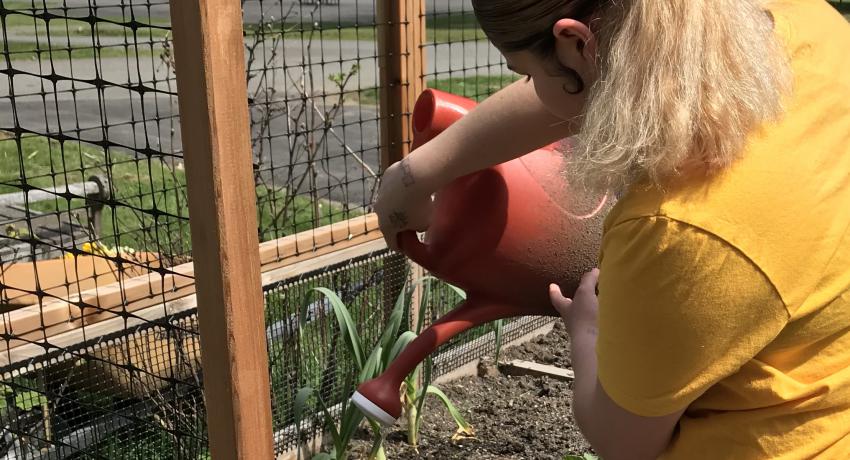In June 2021, Echo Glen Children’s Center launched an Edible Schoolyard Project for youth and young adults in residence. When Juvenile Rehabilitation Assistant Secretary Felice Upton was looking for ways to support youth with non-traditional learning needs, she reached out to the Edible Schoolyard Project and soon developed a partnership.
A young person’s experience outside the classroom is just as valuable as inside. The Edible Schoolyard Project curriculum provides content-rich learning experiences that allow youth to learn and practice hard skills, develop their knowledge of food systems, and produce tangible results in the kitchen and garden. This garden program brings education outdoors and connects youth with nature, agriculture, and cooking, with two primary components:
- Know, Sow, Grow – Youth receive hands-on education on planting, growing, and caring for plants. The curriculum provides instruction in basic plant biology, plant and gardening vocabulary, and plant observation.
- Cooking with Curiosity – Youth are introduced to cooking, developing culinary skills and vocabulary, and building reflection practices to cook with confidence.
The program also boosts self-confidence, builds trust and problem-solving skills, lowers stress levels, encourages patience, and provides physical activity for youth.
Thanks to generous volunteers and donations from the community, each living unit at Echo Glen has raised garden beds for youth to “dig in” to the program. Additionally, a recent $10,000 donation from a long-time volunteer will fund the purchase of greenhouses and an official outdoor classroom set up to enhance the program.
Helping youth flourish is at the core of DCYF’s mission, and the Edible Schoolyard Project is an excellent reflection of that – youth learning to plant their seeds and help them grow. Additionally, DCYF’s Strategic and Racial Equity Plan prioritizes creating successful transitions to adulthood through strengthening therapeutic environments, enhancing services, and fostering quality adult relationships. The gardening program propels this work.

